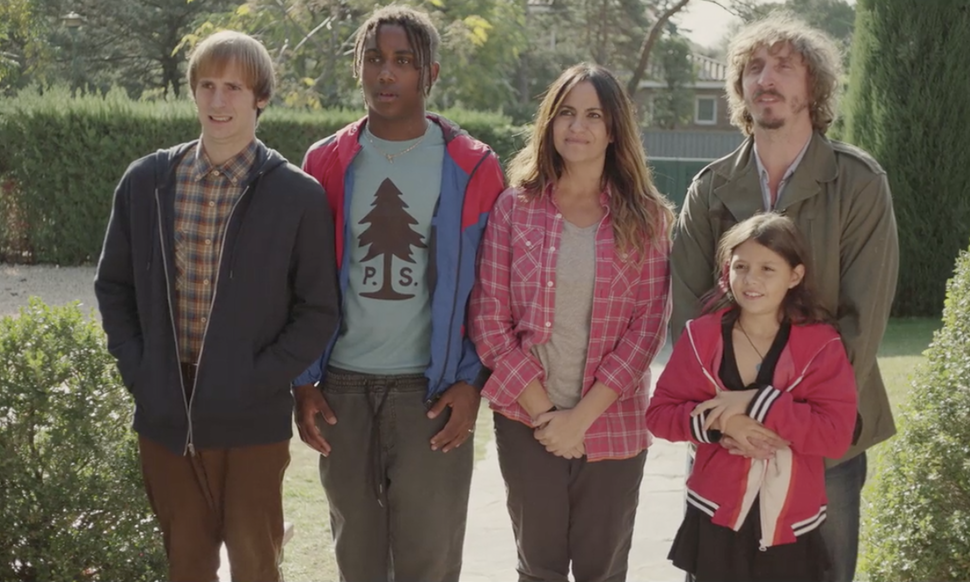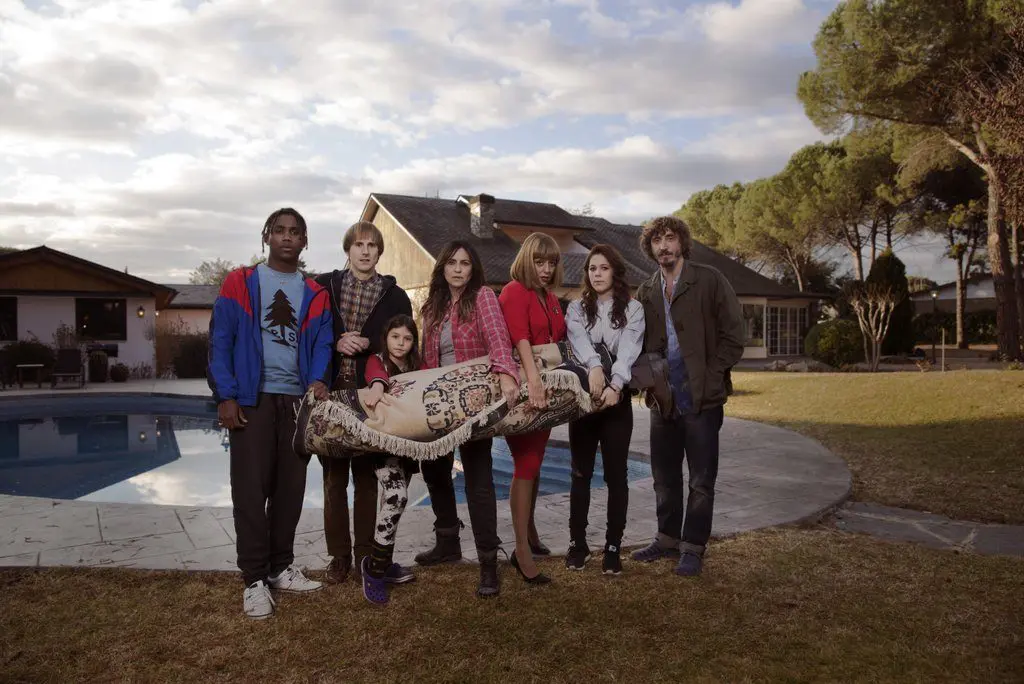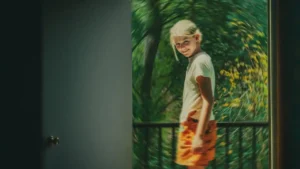Summary
A little uneven, and the modes of humour don’t always mesh particularly well, but Catalan dark-comedy Welcome to the Family is another solid piece of overseas programming for the streaming giant.
Netflix’s world-gobbling expansion efforts continue apace, and after the remarkable success of the (very good) Indian crime series Sacred Games, it’s no surprise that international programming is forming a large part of the streaming service’s library in 2018. The latest is Welcome to the Family, or Benvinguts a la família, a Catalan dark comedy series, the 13-hour first season of which premiered today.
The first episode begins with Àngela (Melani Olivares) and her oddball family being evicted from their home; not an altogether original setup, but also appropriate given that Catalonia has been in a state of economic and political flux since it declared independence from Spain in October of last year. The put-upon single mother isn’t a new archetype, but Olivares is great here, and the character’s unusual family dynamic keeps her financial plight from feeling too played-out.
She is, admittedly, supported by her brother-in-law, Nando (Ivan Massagué), a self-styled entrepreneur and unofficial David Spade stand-in, and her three children, Fran (Nao Albet), David (Leïti Séne) and Sara (Nonna Cardoner). Neither of the boys looks young enough to really sell themselves as kids, and they’re initially presented as rather clichéd bundles of young-people stereotypes before they’re allowed to grow into actual characters. David is black, which the jokes never let you forget, while Fran is obsessed with cosmology and socially useless. There’s more to both of them – and the foul-mouthed, adorable youngster – than first impressions suggest, but it can be off-putting in the season’s earliest episodes.
Admittedly, Welcome to the Family is less concerned with developing its characters in the early-going than it is with establishing the faintly absurd situation they all find themselves in. Turning to her wealthy, estranged father, Eduardo (Simón Andreu), for help with the money, Àngela and company travel to his fancy-pants rural estate where they meet his current wife, Victoria (Yolanda Ramos) – who initially mistakes David for her adopted African child – and her good-looking daughter, Alex (Georgina Amorós). Victoria is a former actress who hasn’t worked in fifteen years, instead spending her days getting drunk and pampering herself in the lonely comfort of her husband’s wealth. But Eduardo despises his wife almost as much as his daughter, so when he suffers a stress-related heart attack, both women discover that neither of them are beneficiaries in his will.

Going further into the plot would be doing Welcome to the Family a disservice, as it takes some interesting turns, but needless to say, the death is covered up until fair distribution of Eduardo’s finances can be sorted out. That’s where the “dark” half of the comedy comes from, and it’s not a mode that necessarily suits the show – at least not all of the time. It’s difficult to reconcile corpse disposal with typical teen awkward-boner gags, but it’s something that Welcome to the Family gets a little better at as the characters are fleshed out.
Even though the show’s attempts to moving away from the traditional family-drama routine are where it occasionally stumbles, it’s nonetheless refreshing to see, especially how Welcome to the Family challenges traditional definitions of what a “family” actually is, or what it might be given the chance.
Welcome to the Family was created by Pau Freixas and Iván Mercadé, both of whom were also responsible for the 2011 Catalan program Polseres vermelles, or The Red Band Society, which was remade for American audiences on Fox and promptly cancelled when it underperformed. The creative familiarity comes through, and the non-English origins shouldn’t be off-putting, as Netflix’s usual wide array of language options includes both the original, subtitled Catalan, as well as several voiceovers. I will say, though, that the English-language dub isn’t great; the vocal performances frequently don’t match the emotion being displayed by the actors, and the effect is noticeable. Unless you’re militantly opposed to reading your television, subtitles are the route you should take.




